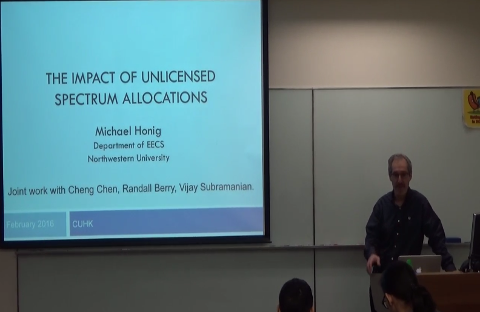
An objective for 5G mobile broadband access is the seamless integration of available spectrum resources, including licensed and unlicensed. We start by examining the case for allocating spectrum as unlicensed, and then present two models that illustrate how unlicensed allocations can affect strategic decisions made by wireless operators. In the first, new spectrum is added to an existing set of licensed bands. We show that if the new spectrum is unlicensed, congestion in that band can lower social welfare relative to what is generated by a licensed allocation with many competing operators. In the second model, an operator decides how to allocate its licensed spectrum across two separate bands, one for a macro-cell network that can serve high-mobility users, and the other for a small-cell network that can only serve fixed users. Here the addition of unlicensed spectrum affects the amount of bandwidth the operator allocates to its small-cell network. The social welfare generated by allocating a fraction of any new bandwidth as unlicensed then depends on the relative spectral efficiencies of the unlicensed and small-cell networks.
(joint work with Cheng Chen, Randall Berry, and Vijay Subramanian)
Michael L. Honig is a Professor in the Department of Electrical Engineering and Computer Science at Northwestern University. Prior to joining Northwestern he worked in the Systems Principles Research Division at Bellcore in Morristown, NJ, and at Bell Laboratories in Holmdel, NJ. He received the B.S. degree in electrical engineering from Stanford University in 1977, and the M.S. and Ph.D. degrees in electrical engineering from the University of California, Berkeley, in 1981. He has held visiting scholar positions at the Naval Research Laboratory (San Diego), the University of California, Berkeley, the University of Sydney, Princeton University, and the Technical University of Munich. Dr. Honig has served as editor and guest editor for several journals, and as a member of the of the Board of Governors for the IEEE Information Theory Society. He is a Fellow of IEEE, the recipient of a Humboldt Research Award for Senior U.S. Scientists, and the co-recipient of the 2002 IEEE Communications Society and Information Theory Society Joint Paper Award and the 2010 IEEE Marconi Prize Paper Award.
![]()
